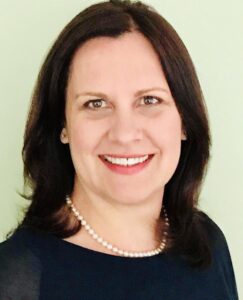While an active member of her state rheumatology society, L. Manuela Marinescu, MD, saw the value of connecting with other regional groups to share information and advocacy strategies. On Nov. 16, she assumed the role of chair of the ACR’s Affiliate Society Council (ASC), where she will help facilitate those connections.

Dr. L. Manuela Marinescu
Dr. Marinescu graduated with her degree in medicine from Carol Davila University of Medicine in Bucharest, Romania, then completed her residency at North Shore-LIJ System on Long Island, N.Y., where she was also chief resident. Following that, she completed her rheumatology fellowship at Albert Einstein College of Medicine, The Bronx, N.Y. She currently practices rheumatology at Rheumatology Associates of Long Island and is a clinical assistant professor of medicine at Stony Brook University, where she participates in the Rheumatology Fellowship Program. She recently spoke with The Rheumatologist about state-level advocacy and the role of the ASC.
The Rheumatologist (TR): How did your involvement with the ASC begin?
Dr. Marinescu: I knew about the New York State Rheumatology Society chapter since my fellowship, but I didn’t have much extra time! After I joined Rheumatology Associates in 2009, my interest came from seeing my colleagues’ involvement. Our managing partner, Max Hamburger, MD, founded the New York State Rheumatology Society. One of our partners, Howard Blumstein, MD, was our state society chapter liaison to the ASC and then ASC chair from 2014–2017. I decided to get involved too, and became the liaison for our state society chapter in 2017.
TR: The ASC now includes 38 state and local societies comprising 43 states and the District of Columbia. Will your role as chair be to coordinate all the state chapters?
Dr. Marinescu: It’s more about facilitating the conversation and helping state societies come up with ideas about how to present advocacy issues at the state level.
TR: With the variations in healthcare regulations from state to state, how does the ASC furnish specific and relevant advice to state chapters?
Dr. Marinescu: At the end of the day, the advocacy issues tend to overlap. We have advocated for many bills in New York, and then other states faced similar issues a few years later. One example is the Step Therapy Reform Bill (A02834), which was passed in New York in 2017, but that at the time had not passed in many other states. During biannual meetings in Washington, D.C., at ACR annual meetings and in phone conversations, the ASC discussed how we advocated and what the best approach is. Now, 29 states have passed step therapy reform legislation. Other times, an issue that we will face in New York will arise in another state first. The ASC provides us the opportunity to learn about issues and develop potential responses before it begins to impact our New York members.